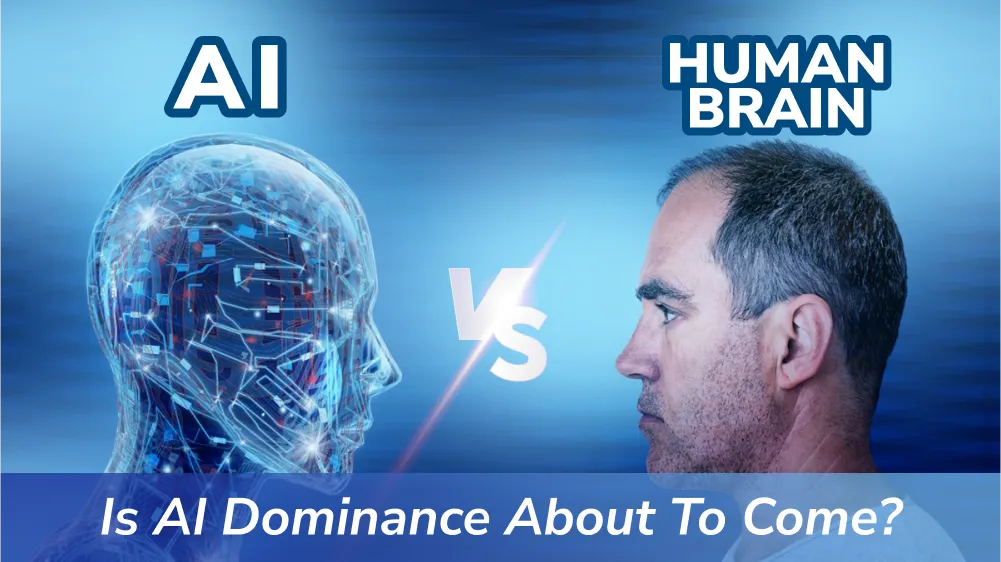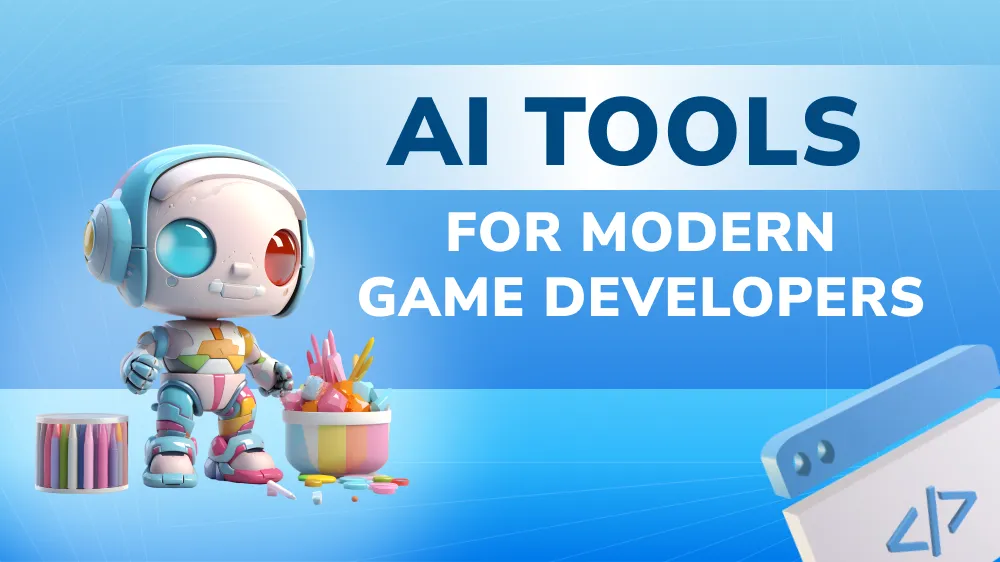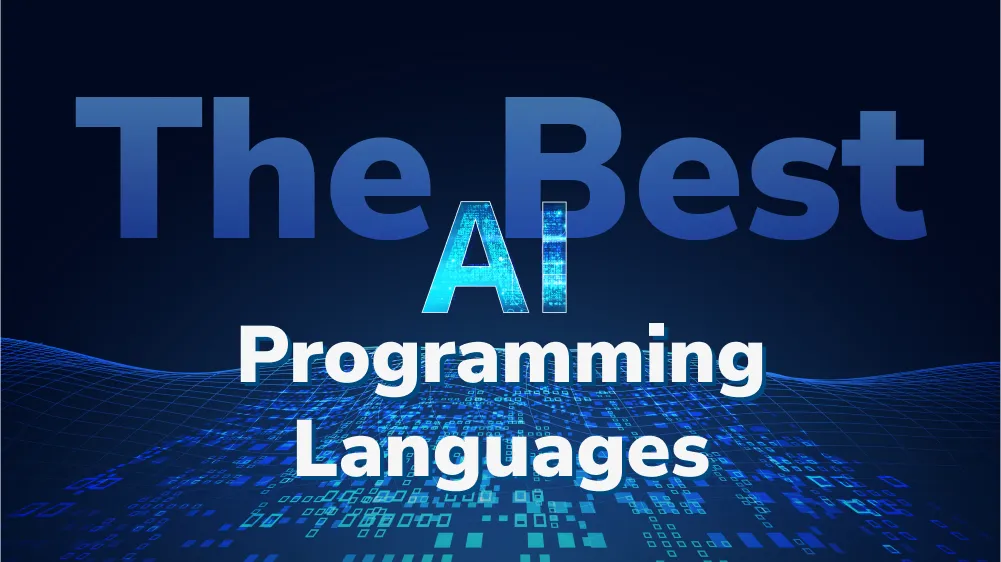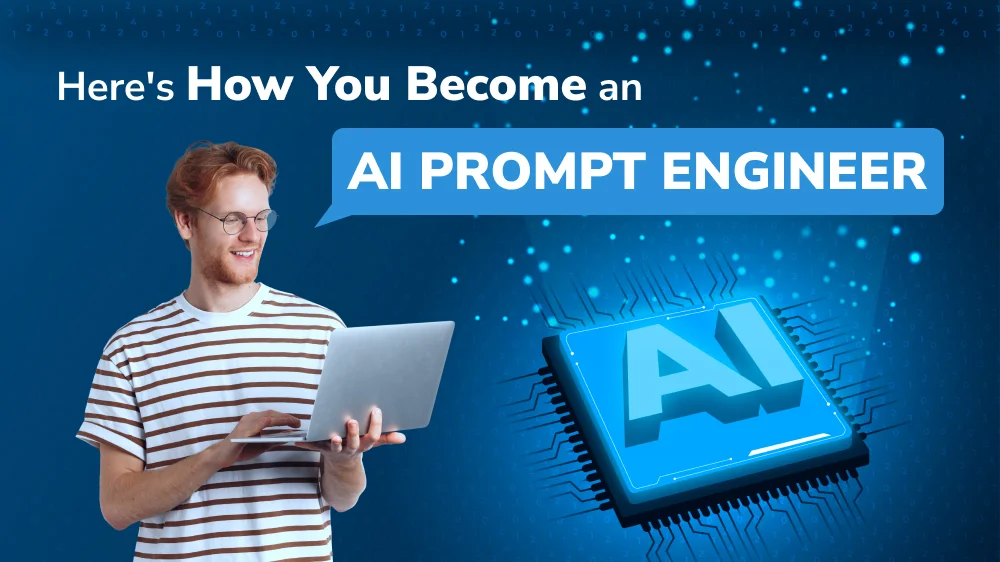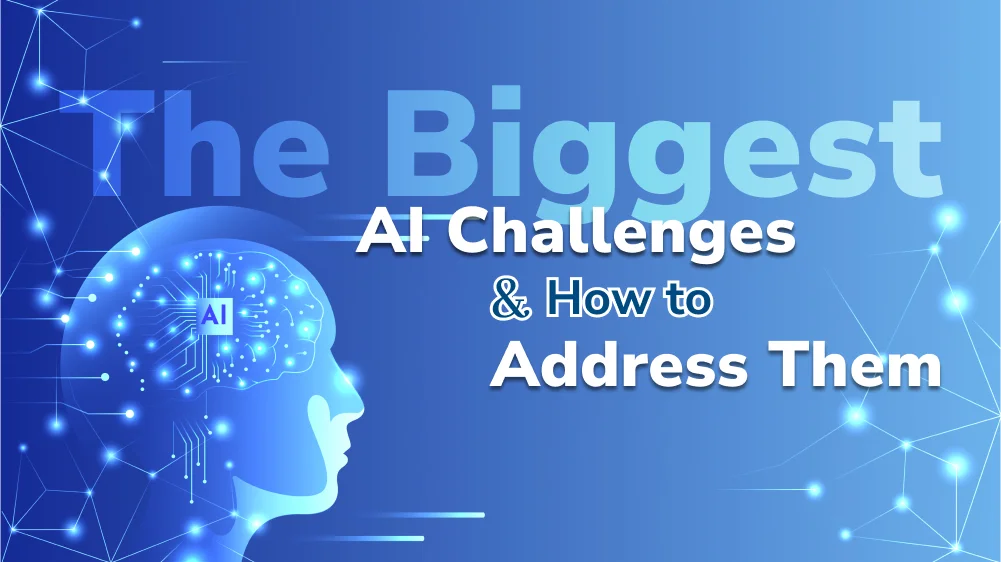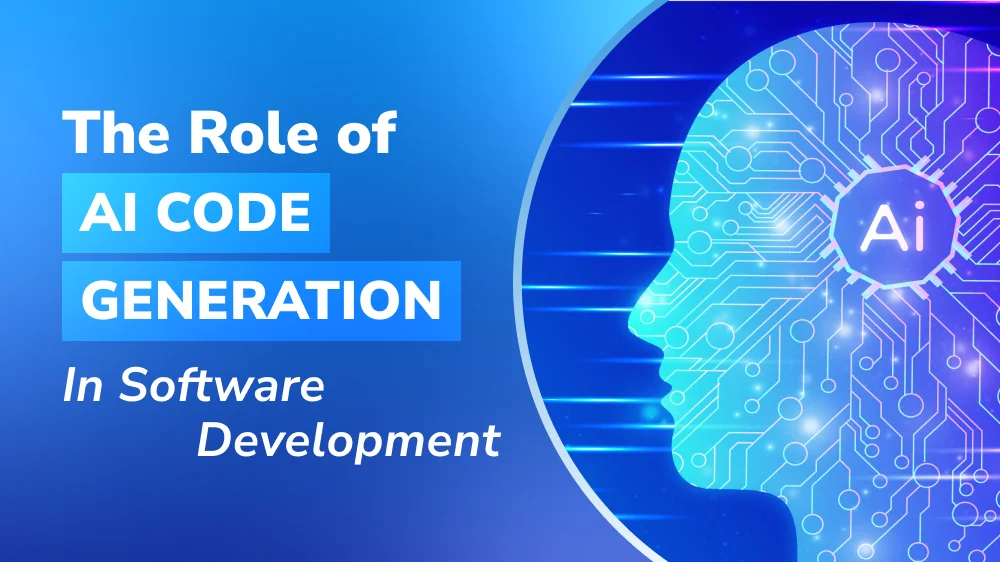Can Artificial Intelligence Coding Engines Finally Replace Human Developers?
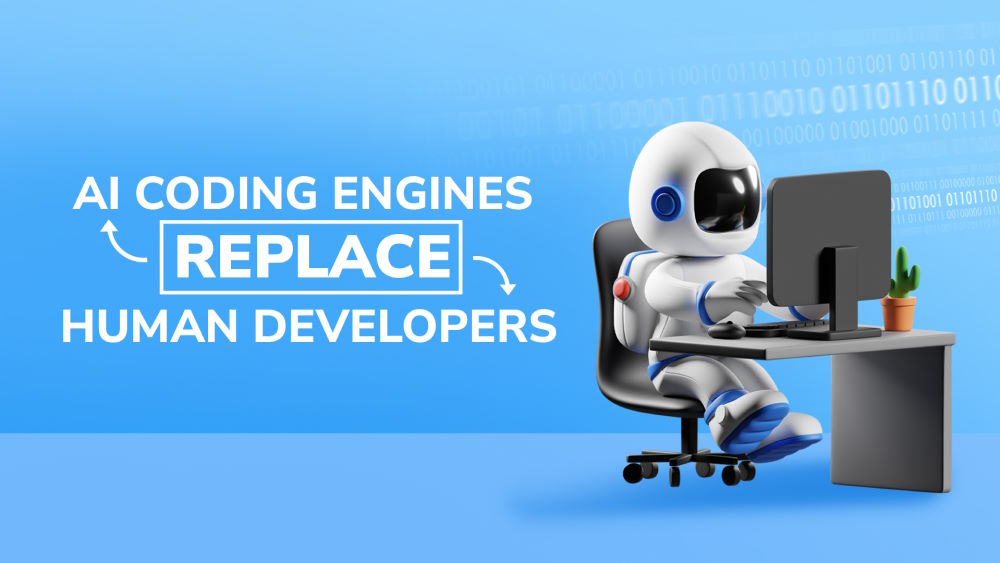
Content Map
More chaptersAs another step toward advancing Artificial Intelligence (AI) to become more and more human-like, AI programs can now write code just like a normal developer. Will AI coding engines really work, or is it just an unreal engine?
The Beginning of the AI-Language Model
GPT-2 and Its Initial Impact
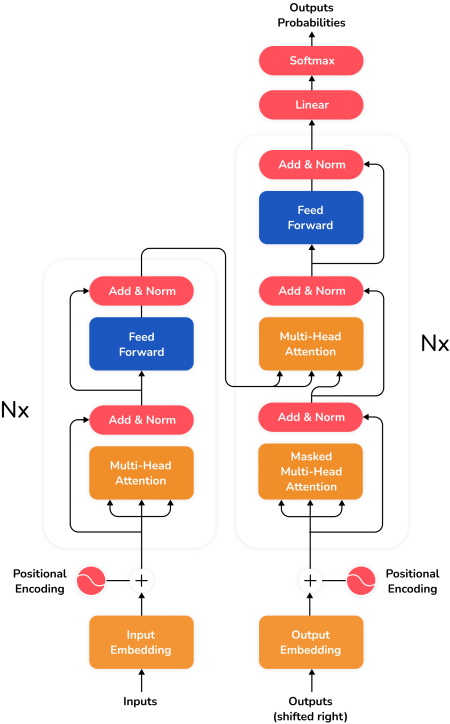
When Generative Pre-Trained Transformer 2 (or GPT-2 for short) came out in February 2019, it topped the Artificial Intelligence news for various reasons. In short, GPT-2 is an AI language generative model that was trained on a dataset of eight million web pages to predict the next words in 40 GB of Internet text. GPT-2 was based on the transformer model, a deep learning model in the fields of natural language processing that follows an encoder-decoder structure to generate an output without relying on recurrence and convolutions.
The first thing about GPT-2 is that it can write coherent stories with perfect English, given any context. One such example is the English-speaking unicorn story. Its stories are so believable that OpenAI, the author of GPT-2, has decided not to release the full version to the public due to concerns of “large language models being used to generate deceptive, biased, or abusive language; at scale.” This decision, however, sparked several controversies in the computer science industry as the technology is deemed to be one of the most breakthrough technologies of the decade that can lead to what we are going to write about in this article, AI coding engines.
GPT-3 and the Natural Language Processing Revolution
When GPT-3 was released, it was one of the most astonishing IT inventions of 2020. GPT-3 is exclusively licensed to Microsoft, which allows the company to integrate GPT-3 into its products on a large scale. However, due to the public’s opinions against withholding GPT-2 information, OpenAI decided to fully release GPT-3 to the public on November 18th, 2020, after its debut in June 2020, through the OpenAI API. This means the public can gain access to OpenAI’s work, and it can be used by anyone, but only Microsoft can see the code running besides OpenAI. GPT-3 is GPT’s latest neural network AI language and the world’s largest natural language processing (NLP) model at the time that is built based on the transformers model and is currently being used for AI coding engines such as Codex and Copilot.
AI Coding Programs
What is an AI Coding Engine
In simple terms, an AI Coding Engine is a program or a system that assists developers in coding and writing scripts. AI Coding Engines are AI models that are built and trained on huge neural networks with billions of parameters and massive amounts of open-source code. Once faced with tasks, or coding challenges, it is able to respond to the concepts or very specialized puzzles and create scripts on its own to solve the given problem at a competitive level.
Even though big enterprises like Microsoft and Google are investing into their own AI systems to one day possibly replace human developers, and the current outcome is optimistic, whether AI Coding Engines can replace human developers remains an open question.
Codex and Copilot
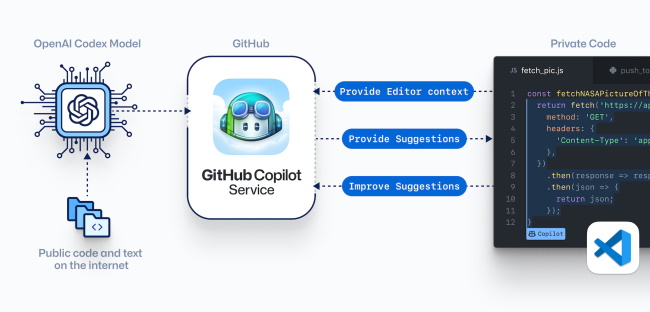 Source: https://copilot.github.com/
Source: https://copilot.github.com/
“GitHub Copilot is powered by Codex, the new AI system created by OpenAI. GitHub Copilot understands significantly more context than most code assistants. So, whether it’s in a docstring, comment, function name, or the code itself, GitHub Copilot uses the context you’ve provided and synthesizes code to match.”
GitHub.
Codex is a descendant of GPT-3, which allows its users to translate English into code. It is used to help amateurs get into coding and speed up professionals. Codex was trained on available source code and natural language, so it can understand both programming and human languages.
Copilot, developed using GitHub’s code database and OpenAI’s Codex, is an Artificial Intelligence-powered pair programmer that assists developers in writing better code syntax and aids in perfecting your code while you’re concentrating your knowledge on producing safe and effective code. Copilot operates on a large set of frameworks and languages and works best with programming languages like Python, JavaScript, TypeScript, Ruby, Go, and the C family of languages. The biggest difference between Copilot and Codex is that while Copilot can write code with you in your text editor, Codex requires you to access it via OpenAI’s API or Playground.
AlphaCode
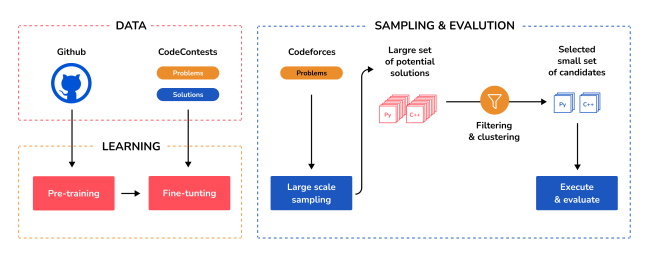
AlphaCode, developed by Google Deepmind and is an AI model that is four times the size of the Copilot model, is used to anticipate the missing parts of a language or code snippet. It is a deep learning model that can generate software code to solve complex coding problems. AlphaCode was built for competitive programming, to generate an entire program that it has never seen before - which is more complicated than generating code snippets or pulling information from massive databases. When taking part in coding contests, AlphaCode was ranked within the top 54% of human competitors.
AlphaCode is built based on the same Transformers model that was used for SGT-3. It is a sequence-to-sequence (seq-2-seq) model which takes a sequence of input to produce another sequence of values.
DeepMind believes that AlphaCode still needs some refinements to increase its ability and precision; nonetheless, the current results have exceeded their expectations, and the machine is learning fast. Perhaps in the near future, AlphaCode’s automated process can completely replace and surpass the result of human developers, they believe.
The Future of AI Coding Engines
Artificial Intelligence Vs. Human Brain
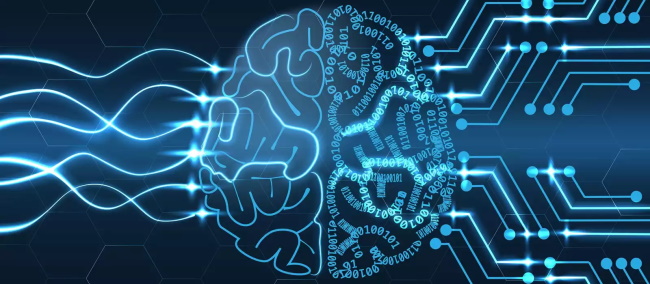
AI is a topic that has been trending for decades; however, whether AI can replace humans has only been a recent debate. In 1997, IBM’s Deep Blue computer successfully beat the world’s Chess champion, paving the way for the potential of a day where AI can fully mimic and replace humans.
Now, Artificial Intelligence is slowly and gradually replacing humans in the labor force, especially in fields that require accuracy and repetition like manufacturing or extensive research like market researching or data mining. Businesses are using AI systems to improve quality of life, for example, from small things like smart assistance, or face recognition, to self-driving cars and car crash detection. Now, with the possibility of AI coding engines, developers can now code faster and more efficiently. This opens a new era where companies can push out better, higher-quality IT products in a shorter time frame, which leads to market innovation as well as digital transformation.
Can AI Truly Replace Humans?
Whether computer programs can think and perform like human programmers has always been a passionate debate between AI enthusiasts. However, as there is no AI model currently that can replace human coders 100% accurately, especially on high-security tasks, AI is now used to assist instead of taking over, and that is perfectly fine. Although there have been improvements on AI coding engines, these machine learning models pose a security risk due to the potential of being hacked or exploited, as well as plagiarism and authenticity concerns as these AI programs are trained on public resources and libraries.
Another problem with relying heavily on AI is that AI models are very CPU and GPU intensive, especially when working with large databases and neural networks.
It is without a doubt that human coders will need to learn new AI skills to become more specialized in this area; however, specialists predicted that it is highly unlikely that AI will ever truly replace humans. AI pair development makes sure that human errors are not overlooked, and developers are there to double-check on code accuracy and reduce the processor workload. Together, code generating becomes a more competent task.
What does AI coding mean for Businesses?
As mentioned above, Artificial Intelligence is now used to assist human programmers in coding faster and more fool-proof scripts. Even though it will be years or even decades before AI coding engines are implemented and utilized, businesses will soon need to be trained to adapt and leverage this new AI technology properly. There is a reason why big enterprises are investing billions and billions in AI programming and Machine Learning, such as Microsoft investing $1 billion into OpenAI’s research and development team - the developer of GPT-3 and Codex. Experts predicted that the AI market will grow to become a $300+ billion industry by 2026 (estimated $57 billion in 2022).
GPT-3 is also being used in more than 300 different apps by thousands of developers and producing over 4.5 billion words per day, according to AI. Many businesses are using AI coding engines for their daily functional needs, such as surveys, help desk, and product improvements. Examples for this are Flowrite, where the system can automatically generate emails and messages for its users using their own writing style, and Viable, which is used to gather customer data and useful insights.
What Should Your Next Step Toward AI Coding Be as a Business?
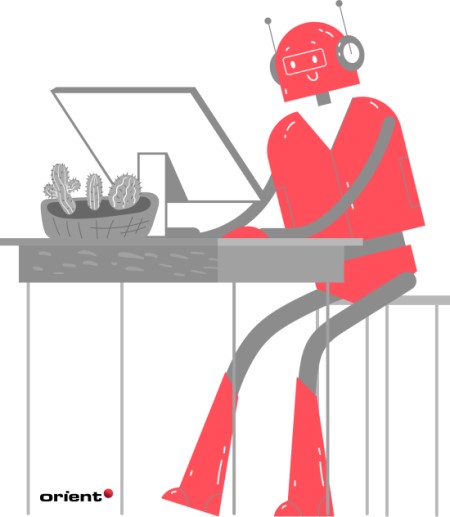
The world needs IT developers more than ever, as technology is advancing at an amazing speed, and in order to keep up with the pace of change, businesses need qualified developers. Currently, the world is facing one of its biggest tech skills shortages as there are not enough developers as new technologies emerge that need to be learned and adapted. Businesses are turning to offshore and outsourcing companies to fulfill their IT needs, and even with a global supply, companies are still competing for top talent and professionals that are knowledgeable about new technologies, especially in AI and Machine Learning.
If you are an executive or a decision-maker in any business, it’s essential to know and be updated on technology trends and stay ahead of the curve. AI has been one of the most sought-after technologies that every business needs to know and apply to their products and services. Many are striving to learn and adapt to AI in their daily life, yet not everyone knows how. This should not stop your business from moving forward and making good use of AI, even if you are not an expert. There are resources that can provide help to make sure that your business can maximize this field of technology. It is vital to embrace the changes and yearn for new things as AI can potentially transform and remake the economy and be ready for its impact.

